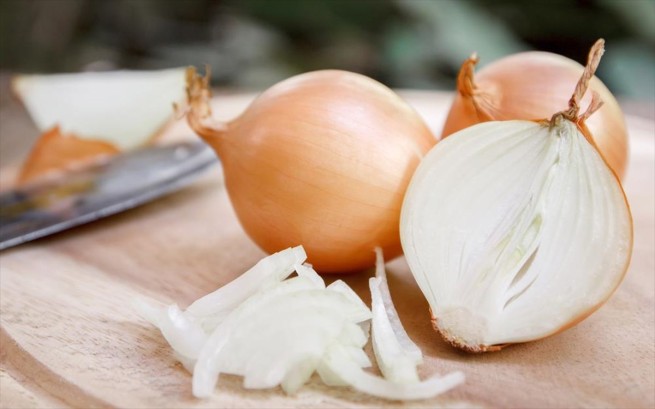Greek cuisine is impossible without onions, and the truth is that they are the main ingredient in sauces, salads, pies, etc.
However, did you know that in addition to its strong smell, it also has the following properties:
- Onions are rich in flavonoids (more than 25 types), the most famous of which is quercetin, which has been shown to stop the growth of tumors in animals and protect colon cells from the harmful effects of certain carcinogens.
- Flavonoids have anti-inflammatory effects, reducing the severity of symptoms associated with inflammatory diseases such as rheumatoid arthritis, allergic inflammatory response asthma, and airway congestion associated with the common cold.
- Flavonoids have an anticoagulant effect, and their regular consumption reduces high cholesterol and high blood pressure, and also helps control sugar levels.
- Quercetin has therapeutic, antibacterial and antifungal properties and, thanks to its vitamin C content, promotes the absorption of iron.
- Consumption of onions has been shown to improve bone health, and studies have shown that the more often older women consume them, the more the risk of fractures is reduced, even by more than 20%.
Onions were first mentioned in the 4th millennium BC. The Sumerians and Egyptians considered this plant almost sacred; the bulbs served as an offering to the gods and pharaohs. They even swore on the onion, and then kept the onion. It could not be eaten, since it acted as a guarantor of honesty.
The people of Ancient Rome thought that the strength and courage of the army could be increased by constantly eating onions, so they introduced it into the soldiers’ diet. They also believed that this plant could be used to treat the eyes, as it caused tears. A 2018 study found that onions have some antibacterial properties against known bacteria such as:
- coli;
- Pseudomonas aeruginosa;
- staphylococcus
This is due to a substance such as quercetin, which has the ability to inhibit the growth of Helicobacter pylori bacteria and certain types of staphylococcus.







More Stories
Enjoying food can help you maintain your waistline
Eat as much as possible "Tiger shark"
The merciful Greek gave the snake water to drink